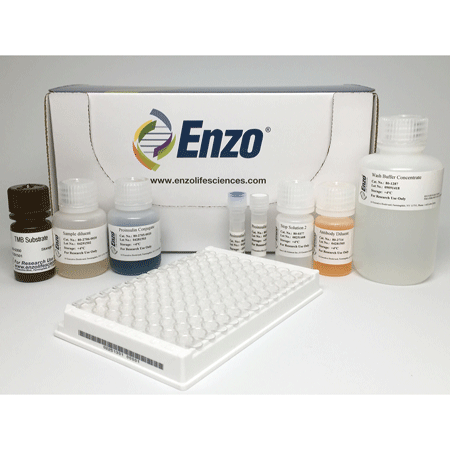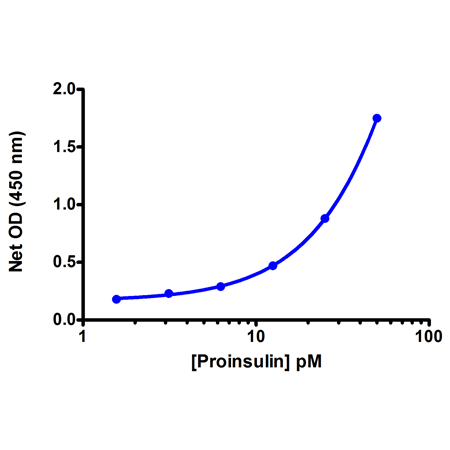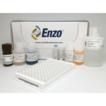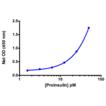-
Ultra-sensitive measurement of proinsulin, detecting as little as 0.17 pM
-
Negligible cross reactivity with insulin
-
High throughput format with results in 3 hours for up to 40 samples in duplicate
-
Fully quantitative results that surpass semi-quantitative Western blot analysis
The Proinsulin ELISA kit is a colorimetric immunometric immunoassay kit with results in 3 hours.
Please mouse over
Product Details
| Sensitivity: | 0.17 pM (1.56-50pM) |
| |
| Assay Time: | 3 hours |
| |
| Applications: | ELISA, Colorimetric detection
|
| |
| Application Notes: | For the quantitative determination of proinsulin in human serum and plasma samples. |
| |
| Wavelength: | 450 nm |
| |
| Species reactivity: | Human
|
| |
| Crossreactivity: | Minimal cross-reactivity to similar family molecules (<1.13% for insulin). |
| |
| Shipping: | Blue Ice |
| |
| Long Term Storage: | +4°C |
| |
| Contents: | Microtiter plate, Assay Buffer 13, Standard, Wash Buffer Concentrate, Antibody, Antibody Diluent, Conjugate, Substrate, and Stop Solution |
| |
| Scientific Background: | Type 2 diabetes mellitus is the most common serious metabolic condition in the world, and results from a subnormal response of tissues to insulin (insulin resistance) and a failure of the insulin-secreting beta cells to compensate. Insulin is required for glucose homeostasis and an important precursor protein to insulin is proinsulin. Proinsulin is composed of the A and B subunits of insulin and is connected by the C-peptide region. This 10.5 kDa protein, which contains 110 amino acids, is synthesized as a single chain that contains a 24 amino acid signal sequence and an 86 amino acid proinsulin propeptide. Proinsulin is processed in the endoplasmic reticulum of pancreatic β-cells and is converted within immature secretory granules into insulin and C-peptide. While mature insulin is required for glucose homeostasis and C-peptide is associated with renal function, proinsulin has low metabolic activity. However, it is biologically active and is a regulator of development in prepancreatic embryonic stages. The release of proinsulin is significantly increased in patients with type 2 diabetes as well as in individuals with impaired glucose tolerance (IGT). The levels of proinsulin can also increase with age. |
| |
| UniProt ID: | P01308 |
| |
| Regulatory Status: | RUO - Research Use Only |
| |
| Compatibility: | This product is compatible with the Absorbance 96 Plate Reader.
 |
| |
Related Products
















